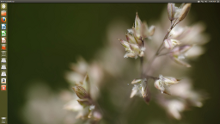Ubuntu moves some Linux development inside


Mark Shuttleworth, founder of Canonical and its popular Linux distribution Ubuntu, announced in his blog that they'll be working on some new features behind closed doors for the next release.
Shuttleworth wrote, ""Mapping out the road to 13.04, there are a few items with high 'tada!' value that would be great candidates for folk who want to work on something that will get attention when unveiled. While we won’t talk about them until we think they are ready to celebrate, we’re happy to engage with contributing community members that have established credibility (membership, or close to it) in Ubuntu, who want to be part of the action."
This news came immediately after the release of Ubuntu 12.10.. Shuttleworth knows, "The skunkworks approach has its detractors. We’ve tried it both ways, and in the end, figured out that critics will be critics whether you discuss an idea with them in advance or not. Working on something in a way that lets you refine it till it feels ready to go has advantages: you can take time to craft something, you can be judged when you’re ready, you get a lot more punch when you tell your story, and you get your name in lights (though not every headline is one you necessarily want. ;-)"
Slideshow: Say hello to Ubuntu 12.10 Linux
Some have already suggested that Shuttleworth is doing this because Ubuntu's switch to its Unity interface has proven unpopular. That doesn't seem likely to me.
True, some people still don't like the new-user friendly Unity, but that's old news. Besides, other Linux desktop interfaces, such as GNOME 3.x, have arrived to far more hostile reactions. Indeed, Linus Torvalds recently declared GNOME 3.4 to be a "total user experience design failure.."
Others, such as Fedora Linux developer Christoph Wickert see Ubuntu adopting a more closed development system. Shuttleworth disagrees that Ubuntu is becoming more closed.
In a follow up blog, Shuttleworth said, "Nothing in yesterday’s post about inviting members of the community into some of the projects we work on in confidence implied that the Ubuntu development process is becoming less open."
He continued, "Ubuntu set the standard for transparency a long time ago, when we invited anybody who showed a passion and competence to have commit and upload rights, a strong contrast with the Fedora policy of the time, which required you to be a Red Hat (http://www.redhat.com) employee. We continue that tradition with a leadership Community Council that has no requirement of Canonical employment, unlike our competitors. And we invite everyone to participate in the design and development of Ubuntu, which happens in public at UDS (Ubuntu Development Summit) ... and online on IRC and Launchpad."
Fedora, while still under Red Hat's control, has long abandoned requiring its developers to be Red Hat employees. Other Linux distribitions, such as SUSE and its community branch openSUSE and Google with Android have gone through similar phases of closing and re-opening their doors to the public. Eventually, once the operating systems are released, all the code is always revealed.
So what is Shuttleworth doing? He wrote, "What I offered to do, yesterday, spontaneously, is to invite members of the community in to the things we are working on as personal projects, before we are ready to share them. This would mean that there was even less of Ubuntu that was NOT shaped and polished by folk other than Canonical – a move that one would think would be well received. This would make Canonical even more transparent."
He concluded, "So please disregard the commentary by folk who assumed that the public discussion of Ubuntu development would somehow change. Instead, I hope you will welcome the idea that even Canonical’s most exciting initiatives will now be open to participation by members of the community. And I challenge you to find another place where you can participate at EVERY level in the design and construction of a free platform that is used by millions of people."
This all strikes me as a tempest in a teacup. Almost all the Linux distributions do some of their work behind closed doors until they're ready to show their work off in public. Those few that don't, Debianbeing the biggest example, are known for their very slow, and often argumentative, development process.
If Shuttleworth and Canonical want to keep some projects quiet until they're ready for show and tell, they're just doing what many Linux distributors have done long before them. Instead of wasting time and energy on who's more open than someone else, all the Linux developers should be focusing their attention on developing the best possible operating system. Arguing like this only benefits Linux's operating system rivals: Mac OS X and Windows and doesn't help Linux, or any of its distributions.
Related Stories: